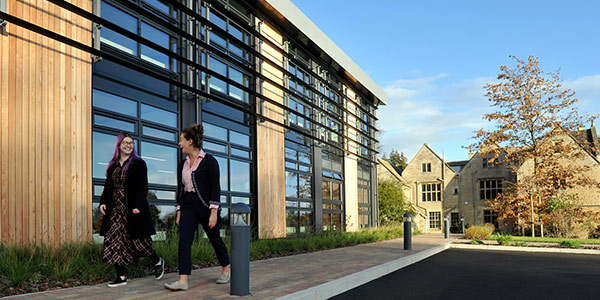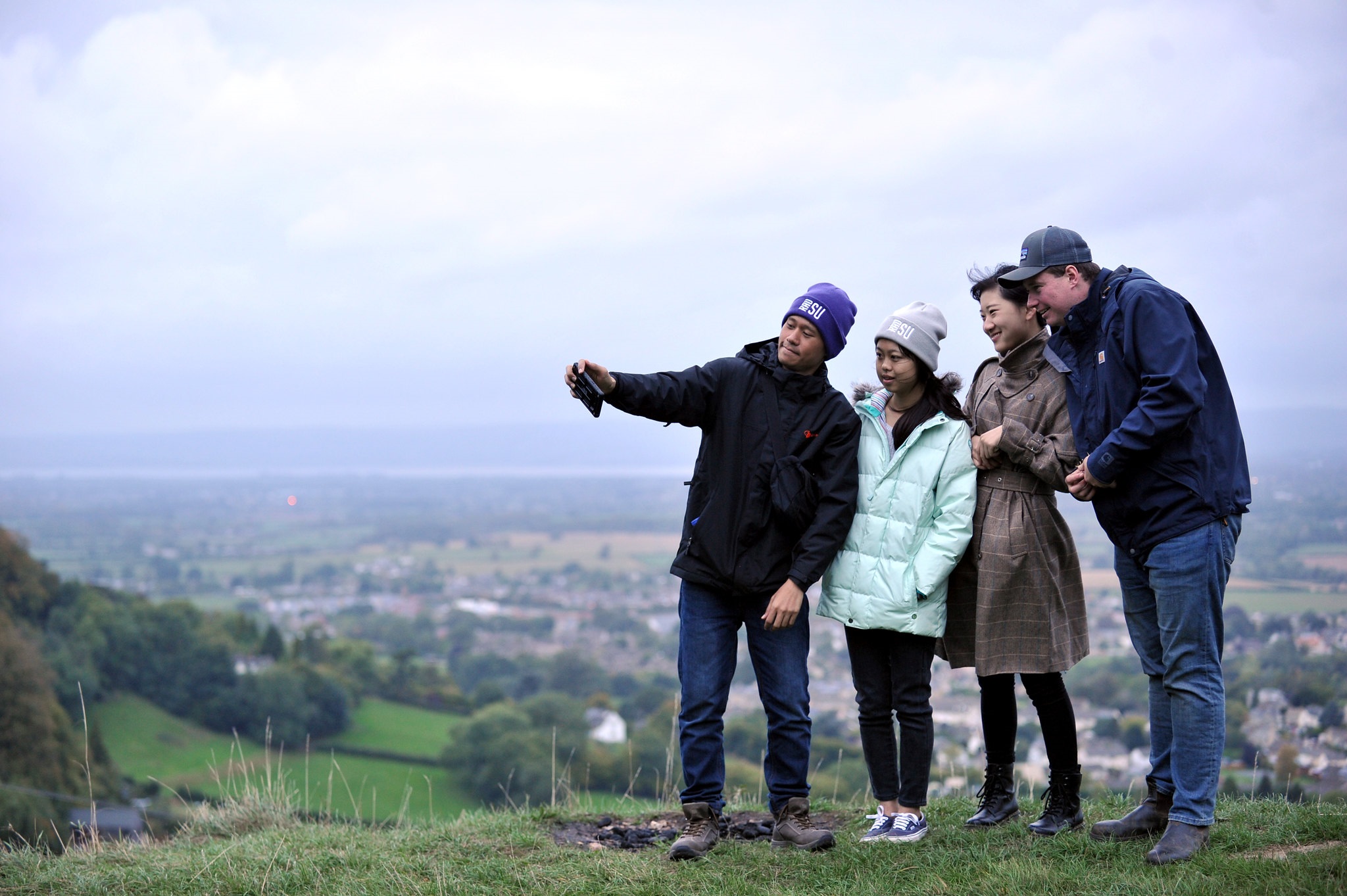PgDip in Agricultural Technology and Innovation
With the unfolding of the Fourth Industrial Revolution (4IR), artificial intelligence (AI), analytics, connected sensors, Internet of Things (IoT), biotechnology and other technologies are being leveraged to keep agriculture sustainable. This programme will equip you with theoretical background combined with business management, to come up with disruptive, sustainable and ground-breaking innovations. Graduates are likely to start their own businesses, become consultants, work in the agriculture industry or, work for the government as advisors or policy makers.
Course overview
Developments in sensors, robotics, automation, analytics and telematics are enabling new and sophisticated ways of managing agricultural practices. You will gain a comprehensive appreciation of the wide range of new and innovative technologies in the areas of crop production, livestock production, and management of the natural environment, while also learning about entrepreneurship and business management.
Mechanisation and data capture are becoming increasingly important in the production and management of animals, crops and the natural environment. For anyone wishing to start a career in this emerging industry, or for the entrepreneurial among you, this course will help you discover all that you need to know to succeed. Read more about the farms that we learn from.
This is the first course of its kind in the UK and is designed to equip graduates with real world development in novel and innovative technologies applied to agriculture, horticulture, and the natural environment.
You will be given free access to the University's Farm491 facility, an agritech business incubator which provides support to agritech businesses for the promotion of technology and innovation within the sector.
A period of independent study provides an opportunity to engage with sector specialists in a professional capacity. You will also have the opportunity to complete a professional placement following the taught element of the course.
If you are interested in studying Agriculture but cannot commit to the full MSc programme then studying for a Diploma (PgDip) may be the route for you. It is designed to give learners a broad and thorough grounding in the sector to pursue a variety of careers.
What is a Postgraduate Diploma?
The PgDip - or Postgraduate Diploma – is a level 7 course that sits between the PgCert and the full MSc. It allows you to study a subject in depth but without undertaking the Dissertation element. Consequently, it takes substantially less time to complete than the MSc, while still covering the same taught elements. To complete this qualification, you will take eight modules (120 credits).
Full-time students can complete the course in as little as two semesters (one year). Part-time students can choose to spread the course over up to two years, giving you lots of time for thinking and writing between modules. It is ideal for students who want to study a specific subject but would rather not commit to a full MSc with its attendant time and financial costs.
The PgDip can be a great way to boost your career, or enter a new industry. We recognise that life can be unpredictable so the PgDip is built to be as flexible as possible. Should you desire to continue your studies, PgDip credits can be used to contribute towards an MSc qualification later down the line. Conversely, if you need to cut your studies short for any reason, it is also possible to convert the PgDip to a PgCert after the completion of four modules.
*Please note, Visa students must be full-time (a min of 15 hours per week) and will need to attend all sessions in person due to UKVI visa requirements.
Course content
Here at the RAU we are always looking for ways to better support our students. We recognise that a number of our students may be working or have caring responsibilities alongside studying which can sometimes make it difficult to attend every teaching session in person. As such we have the ability for you to join lectures and seminars through an alternative digital format in prior discussion with your programme leader. Please note that for international students on a student visa you are expected to attend your classes in person. Remote delivery is not an UKVI authorised mode of attendance for the taught element of your course and therefore non-attendance would affect your student visa.
Course structure
Our PgDip is designed to be ultra-accessible. All classes are offered both in person and synchronously online, with session recordings available for students unable to attend a particular session.
Timetables
Timetables are normally available one month before registration.
Modules
- Integrated Agricultural Systems
- Entrepreneurship and Business Planning
- Environmental Science and Technology in Agriculture
- Computing and Information Technology in Precision Agriculture
- Livestock Production Technology and Innovation
- Crop Production Technology and Innovation
PLUS a choice of TWO electives from:
- International Rural Development
- Organic and Regenerative Systems
- Managing Global Soils in a Changing Climate
- Climate Change and Sustainability
- Small Scale Farming and Local Food Supply
- Leadership and Personal Development
- Facing the Global Challenges in Food and Agriculture
A description of each module can be found here.
The availability of electives to individual students will be dependent on timetabling considerations and on sufficient students electing to take part.
* Optional additions to the course will incur additional charges
Disclaimer information
The University has established various rules and regulations that you must agree to and follow if you accept an offer to study with us. View our full disclaimer notice.
Careers and graduate destinations
- The high-tech agricultural and environmental sectors
- Industries allied to crop and animal production
- Technical consultancy
- Government and international agencies
- The development of new companies through entrepreneurial initiatives
Potential job opportunities include:
- Agricultural and horticultural industry
- Information technology
- Resource appraisal
- Agronomy
- Farm management
- Academia
It also provides an excellent grounding for further academic study, for example at MSc level.
"This course has truly provided me with the foundation to launch a career in agriculture. The combination of its business and entrepreneurial focus, along with the agricultural knowledge and insights I've gained, has given me the confidence to attempt starting a new venture."
Will Matthews, Graduate
Entry requirements
We welcome applications from applicants with non-standard qualifications who are able to demonstrate knowledge, experience and skills developed in the workplace or elsewhere and which are relevant to the programme of study. Applicants will need to use their personal statement to provide further details supported by a CV. All non-standard applications will be considered by the Programme Manager on a case-by-case basis and applicants can expect that an interview may be required as part of the admissions process.
If English is not your first language, you will need to reach the requirements outlined in our English language requirements for the level of study. For postgraduate taught programmes this is IELTS Academic min. overall 6.5 with no element below 5.5 (or equivalent). English language tests usually have a validity of 2 years from the date the test is taken.
Offers will typically be made in line with the academic requirements set out above. Offers can be conditional or unconditional. An unconditional offer will be made to applicants who have already met the conditions and provided evidence that conditions have been met. Where academic or language requirements have not yet been fulfilled, applicants will receive a conditional offer stating the requirements that must be met.
Fees
2025-26 Applicants (including January 2026)
For the academic year 2025-26 the tuition fees for this course are:
| UK | *Overseas/EU | |
|---|---|---|
| Full-time | £7,700 per year | £14,700 per year |
| Part-time | Fees are calculated on a pro-rata basis depending on the number of modules taken. Please refer to Tuition Fees webpage | N/A |
2026-27 Applicants (September 2026)
For the academic year 2026-27 the tuition fees for this course are:
| UK | *Overseas/EU | |
|---|---|---|
| Full-time | £8,000 per year | £14,700 per year |
| Part-time | Fees are calculated on a pro-rata basis depending on the number of modules taken. Please refer to Tuition Fees webpage | N/A |
*Please note: International students can study on a part-time basis only if they are in the UK with a different type of visa (other than Student Visa/Tier 4 General) that allows them to undertake part-time study and their visa does not expire prior to the end date of the proposed course of study. Please check your Visa eligibility before applying.
Please contact admissions@rau.ac.uk before you apply to confirm your eligibility.
Tuition fees may be subject to an inflationary increase each year as set out in our Access and Participation Plan.
For full details, please visit the fees and funding webpage.
Apply now for January or September 2026 entry
To apply for a postgraduate course you need to complete an online application form. This can be found by selecting your preferred course option at the bottom of this box.
Alternatively, if you cannot access the online form please call Admissions on 01285 889912, or email admissions@rau.ac.uk.
We recommend you keep a copy of the completed form for your records.
Important Information for EU and Overseas applicants for PgDip: EU and Overseas applicants who wish to apply for the PgDip programme, and need a UK study visa to do so, should be aware that upon completion of their study they will not be eligible to apply for a Graduate Route visa.
Application deadline, September entry:
- EU and overseas applicants must submit their application by 29 June 2026
- UK applicants must submit their applications by 1 September 2026
Results deadline, September entry:
- EU and overseas applicants will need to meet their conditions by 31 July 2026
- UK applicants will need to meet their conditions by 14 September 2026
Application deadline, January entry:
- EU and overseas applicants requiring a study visa should submit their application by 1 December 2025 at the latest, applications received after this may be considered for September entry
- UK applicants should aim to submit their applications at the latest by 5 January 2026
Results deadline, January entry:
- EU and overseas applicants will need to meet their conditions by 8 December 2025
- UK applicants will need to meet their conditions by 7 January 2026
Applicants will be notified via email once a decision has been made and decision letters will be emailed to you. If there is a deadline by which applicants must accept an offer of admission or pay a deposit, this will be stated in the offer letter.
Requests to defer the year of entry will be considered only when an applicant holds an Unconditional offer and needs to be submitted in writing to the admissions team. We cannot guarantee that requests will be granted. Decisions on deferral requests are considered:
- For September entry at the end of August
- For January entry at the end of January (or later)
If the deferral request is granted applicants will receive a new offer letter with tuition fees which are applicable to their year of entry, at the opening of the next admissions cycle.
Please choose a course from the options below to apply.



